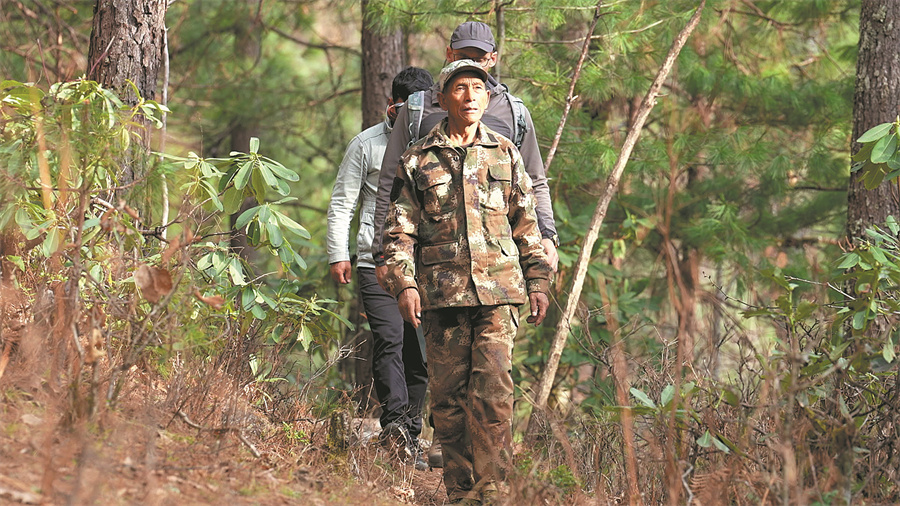Reserve ensures survival of rare monkeys


After he turned in his shotgun, Yu started tracking and protecting the monkeys. "At first, they ran away at the sight of me and kept a watchful eye on me from very far away," he said, adding that as time passed, the animals came to recognize his voice and appearance so they stayed where they were when he approached, eating and resting as usual.
Many other hunters followed Yu's example, so the village's guardian team has grown to 25 people.
They hand out food, monitor the monkeys' health and daily activities and offer assistance when needed. Other tasks include preventing poaching and illegal logging, and clearing hidden dangers such as traps.
In 2008, to raise public awareness of the Yunnan snub-nosed monkey, a national park was built around Xiangguqing, which lies within the Baima reserve, and opened to visitors, thus allowing people to observe the monkeys at elevations of 2,400 to 3,100 meters.
The monkeys usually live at the highest altitudes, but some have been guided by Yu and other rangers to settle in areas more accessible to people. However, it would not be possible for the monkeys to move to lower ground without the trust and bonds forged between them and their protectors.
"I see them as my own kids. I miss them when I leave the village, even if it's only for a few days. I'll continue my ranger work until the day I can no longer walk," Yu said.
Since the park opened, he has had an extra duty: managing the tourists and introducing them to the monkeys' world. By the end of last year, the facility had received about 250,000 visits, becoming a significant window to popularizing the treasured species.
























